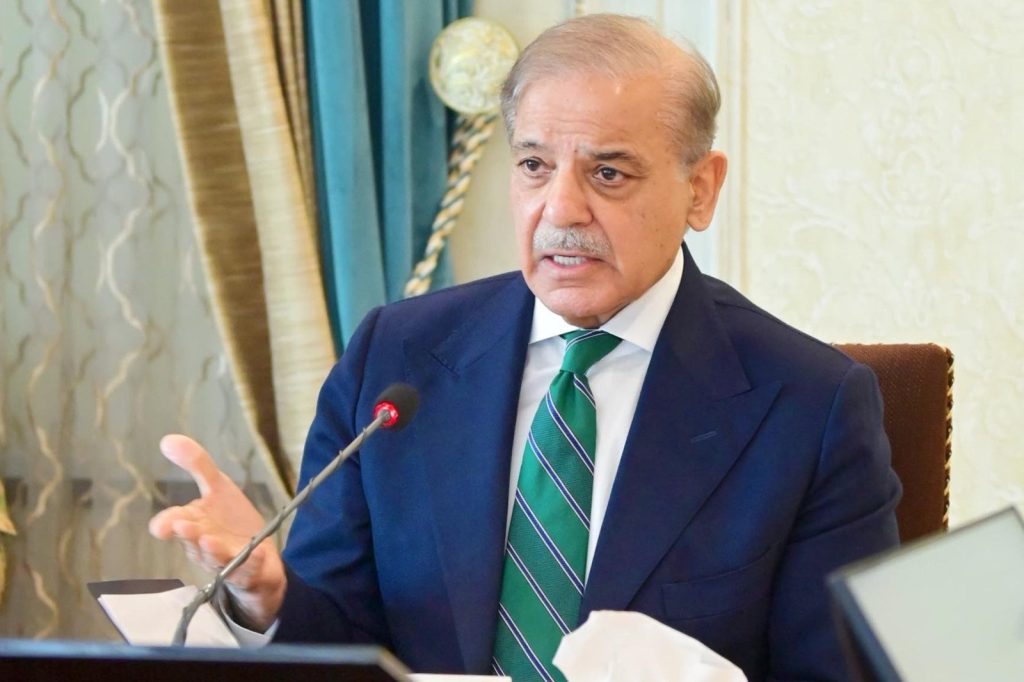Azad Jammu and Kashmir (AJK) witnessed a complete shutter-down and wheel-jam strike on Monday following a call by the Jammu and Kashmir Joint Awami Action Committee (JAAC). Prime Minister Shehbaz Sharif signaled readiness for talks with the committee’s leadership, assuring that 98 percent of their demands had already been accepted, with only two issues still unresolved.
PML-N senior leader and AJK’s former information minister Mushtaq Ahmed Minhas told reporters in London that the prime minister had urged JAAC to withdraw its strike call. He quoted Shehbaz Sharif as saying that he would personally meet the JAAC leadership within two days of returning to Pakistan. The prime minister also emphasized that the protests should be called off in the larger national interest, warning that India could highlight the demonstrations internationally and create embarrassment for Pakistan.
Despite the appeal, JAAC leaders and workers continued mobilising support across districts to ensure the strike’s success. Meanwhile, internet and mobile services were suspended across AJK since Sunday afternoon, with fibre services also cut off. A Pakistan Telecommunication Authority spokesperson confirmed the blackout was ordered by the federal interior ministry. JAAC leader Shaukat Nawaz Mir said the shutdown had pushed the people “into the past” and demanded that services be restored if the government was serious about addressing their demands.
The JAAC has put forward a 38-point charter, including abolition of elite privileges and the removal of 12 legislative assembly seats reserved for Kashmiri refugees living in Pakistan. Earlier, Federal Minister for Kashmir Affairs Amir Muqam and Minister for Parliamentary Affairs Tariq Fazal Chaudhry held lengthy talks with JAAC and local representatives in Muzaffarabad, claiming that all practicable demands had been accepted, while some required constitutional amendments.
For the past two years, JAAC has led multiple protest movements over issues such as flour subsidies, electricity tariffs, and elite perks. Some demonstrations turned violent, including one in May 2024 when clashes with security forces resulted in the deaths of three civilians and a police officer. Although the government previously issued notifications accepting several demands, JAAC insists many agreements were never implemented, leading to the expansion of their charter to 38 points.
Rallies were reported in multiple cities despite the internet suspension. In Rawalakot, demonstrators held a motorcycle rally followed by a torch-lit procession, while a similar march was staged in Bagh. Security was heightened as hundreds of additional police and law enforcement personnel were deployed from Pakistan to maintain order.
Mainstream political parties in AJK, including PML-N and PPP, instructed their workers not to join JAAC protests. Instead, they held their own rallies in Rawalakot and Bagh, led by AJK Prime Minister Chaudhry Anwarul Haq, who accused JAAC of exploiting the situation for political gains. He argued that only two of their demands were unresolved and accused the committee of disguising its real motives by pushing for the abolition of refugee seats in the AJK Legislative Assembly, a move he said undermines the international nature of the Kashmir dispute.
The strike in AJK comes just days after violent protests in Indian-administered Ladakh, where demonstrators demanding political autonomy clashed with security forces, leaving at least five dead and prominent activist Sonam Wangchuk arrested.

